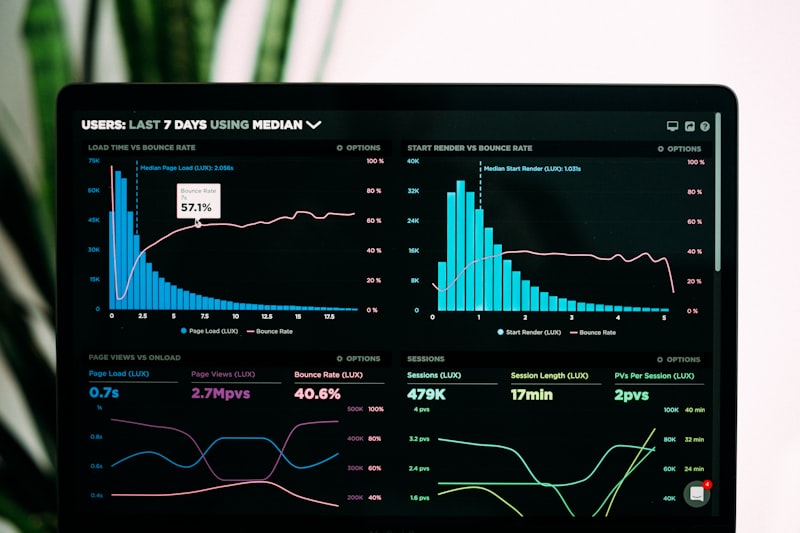Title Tags and Meta Descriptions
The Essential Elements of SEO Success
The Foundation of Search Engine Visibility
Title tags and meta descriptions are fundamental HTML elements that play a crucial role in search engine optimization (SEO). The title tag defines the title of a web page and appears in search engine results pages (SERPs), browser tabs, and when sharing on social media. The meta description provides a brief summary of the page's content and appears beneath the title in SERPs.
Together, these elements form the first impression users have of your page in search results. Well-optimized title tags and meta descriptions can significantly improve click-through rates (CTR), which is a key factor in search rankings. Studies show that pages with optimized titles and descriptions receive up to 5-10% higher CTR than those without proper optimization.

"A well-crafted title tag and meta description can increase your click-through rate by up to 30%, making them one of the most impactful yet often overlooked elements of SEO strategy."
Title Tag Optimization: The First Impression
Best Practices for Title Tags
An effective title tag should be concise, descriptive, and include your primary keyword. Key characteristics include:
- Length: 50-60 characters (Google typically displays the first 50-60 characters)
- Keyword placement: Primary keyword near the beginning
- Branding: Include your brand name at the end if space allows
- Uniqueness: Each page should have a unique title
- Readability: Natural language that appeals to users
- Emotional triggers: Words that encourage clicks (e.g., "Best," "Guide," "2024")
Common Title Tag Mistakes
Avoid these frequent errors that can hurt your SEO performance:
- Keyword stuffing: Overloading with keywords appears spammy
- Being too vague: "Home" or "Untitled" provide no context
- Duplicate titles: Multiple pages with identical titles
- Overly long titles: Gets cut off in search results
- Missing keywords: Failing to include target search terms
- Ignoring local SEO: For location-based businesses
Google may rewrite your title tag if it determines your original version doesn't adequately match search intent.
Crafting Compelling Meta Descriptions
Meta Description Essentials
While not a direct ranking factor, meta descriptions significantly influence click-through rates:
- Optimal length: 120-160 characters (truncated after ~155)
- Clear value proposition: Explain what the page offers
- Action-oriented: Encourage users to click
- Keyword inclusion: Helps with relevance and may be bolded
- Unique content: Avoid duplicate descriptions
- Mobile consideration: Even shorter display on mobile
Advanced Optimization Techniques
Take your meta descriptions to the next level with these strategies:
- Schema markup: Enhance with rich snippets
- Emojis: Can increase visibility (use sparingly)
- FAQ format: For question-based queries
- Numbers/stats: "Learn 10 proven techniques..."
- Urgency/scarcity: "Limited time offer"
- A/B testing: Experiment with different versions
Google rewrites about 70% of meta descriptions when it finds them inadequate, so crafting compelling descriptions helps maintain control over your SERP appearance.
The SEO Impact of Title Tags and Meta Descriptions
How Search Engines Use These Elements
While title tags are a minor ranking factor, their primary importance lies in:
- Helping search engines understand page content
- Influencing click-through rates (an indirect ranking factor)
- Establishing relevance for target keywords
- Improving user experience and satisfaction
- Supporting website structure and hierarchy
Mobile Considerations
With mobile-first indexing, special considerations include:
- Even shorter display space on mobile SERPs
- Importance of front-loading keywords
- Clear, concise messaging for small screens
- Local SEO implications for mobile searches
- Voice search optimization considerations
Implementation and Best Practices
Technical Implementation
Proper HTML implementation is crucial for effectiveness:
- Title tag syntax:
<title>Your Page Title</title> - Meta description syntax:
<meta name="description" content="Your description here"> - CMS considerations: How your platform handles these elements
- Dynamic titles/descriptions: For e-commerce, blogs, etc.
- Canonical tags: To prevent duplicate content issues

Content Strategy Integration
Integrate with your overall content strategy:
- Keyword research: Align with target search terms
- Content clusters: Reflect in title hierarchy
- User intent: Match what searchers want
- Brand voice: Consistent across all pages
- Seasonal updates: Refresh for holidays/events

Testing and Optimization
Continuous improvement through testing:
- A/B testing: Different versions to see what works
- CTR monitoring: In Google Search Console
- Competitor analysis: See what's working for others
- Seasonal adjustments: Update for current trends
- Performance reviews: Quarterly audits
Mastering the Art of SEO Snippets
Title tags and meta descriptions serve as your website's first impression in search results, acting as a digital storefront that can significantly influence click-through rates and overall SEO performance. While they may seem like small elements in the grand scheme of website optimization, their impact on user behavior and search engine understanding is substantial.
Effective optimization of these elements requires a balance between technical precision and marketing psychology. The best title tags and meta descriptions are those that accurately represent page content while simultaneously enticing users to click. They should incorporate target keywords naturally, provide clear value propositions, and differentiate your page from competitors in the SERPs.
As search engines continue to evolve, the importance of well-crafted title tags and meta descriptions remains constant. By following best practices, avoiding common mistakes, and continually testing and refining your approach, you can maximize the potential of these critical SEO elements to drive more qualified traffic to your website.
"Think of your title tag and meta description as a 10-second elevator pitch for your webpage. In the competitive landscape of search results, these elements must immediately communicate value, relevance, and differentiation to capture user attention and clicks."





0 Comments